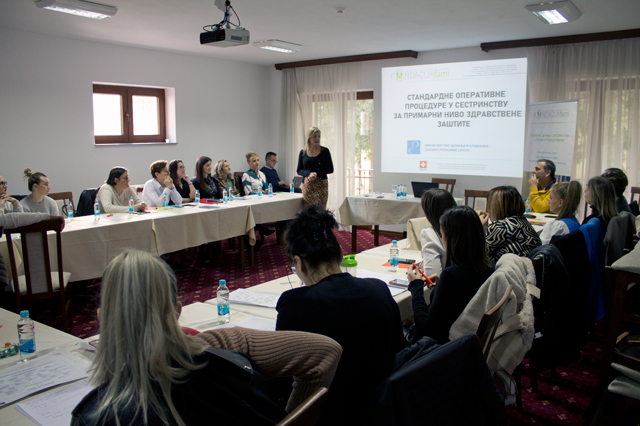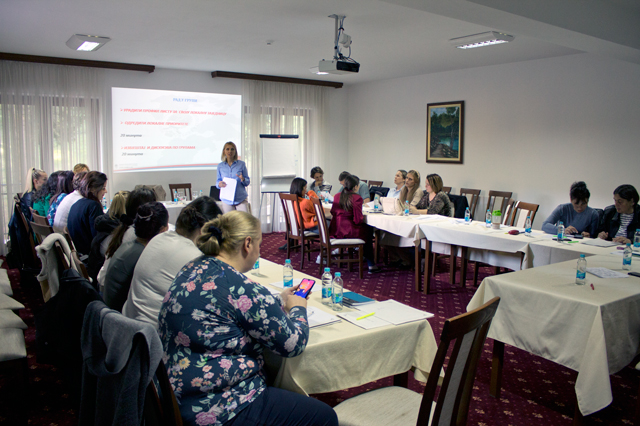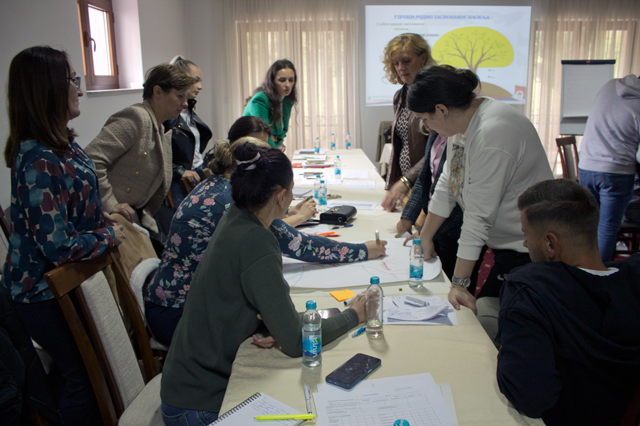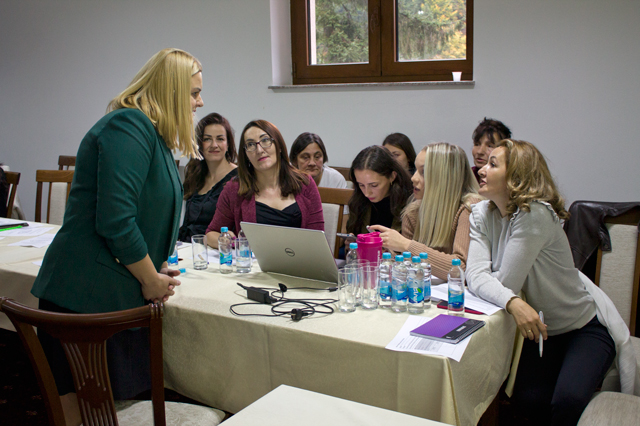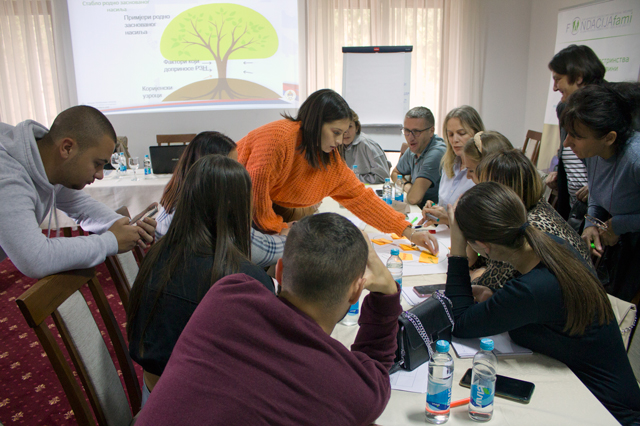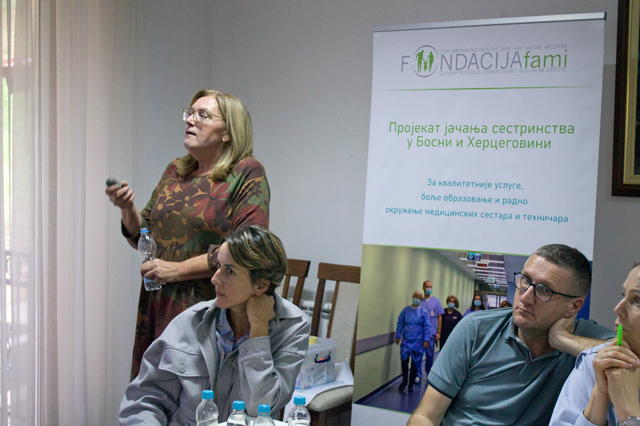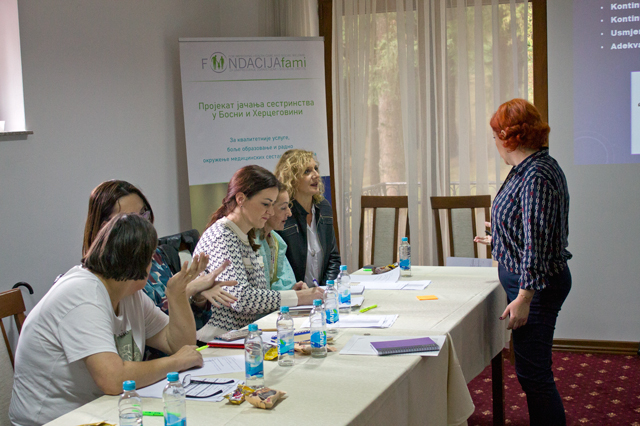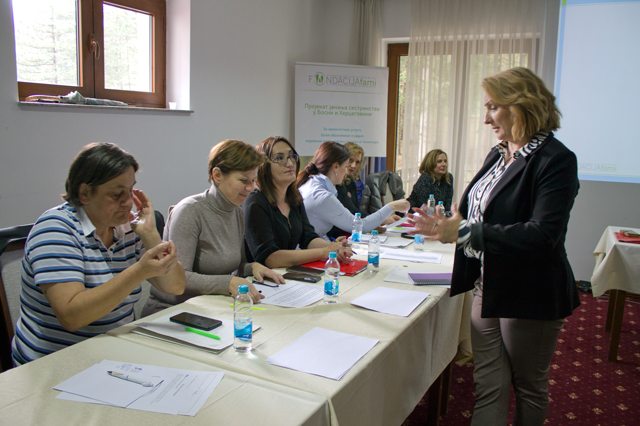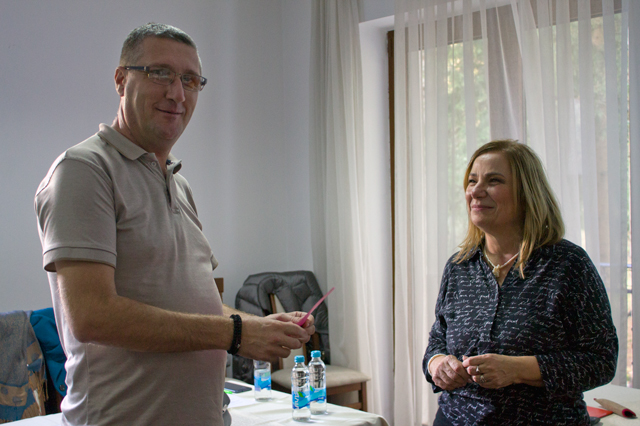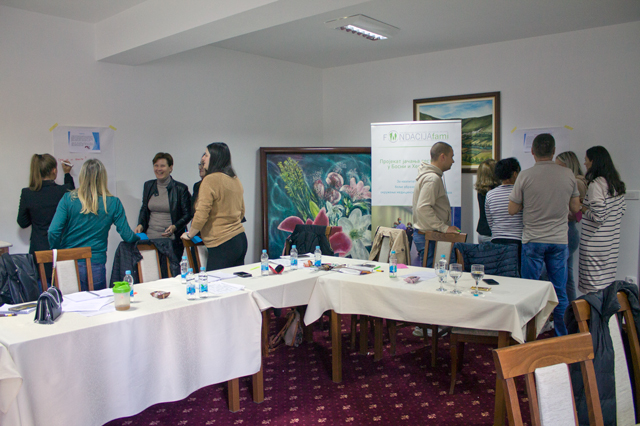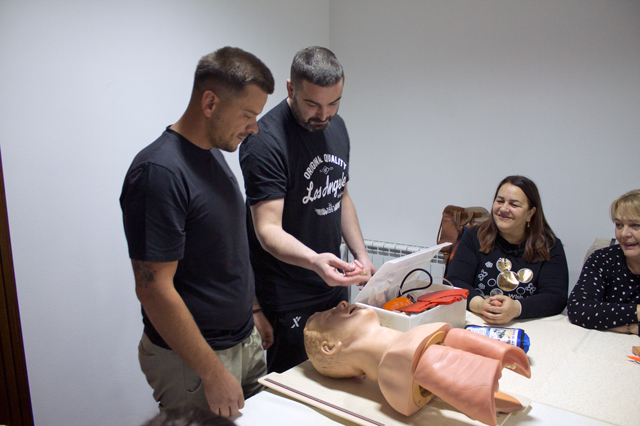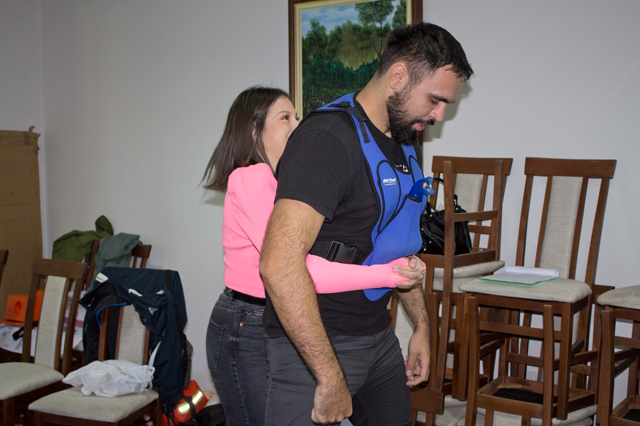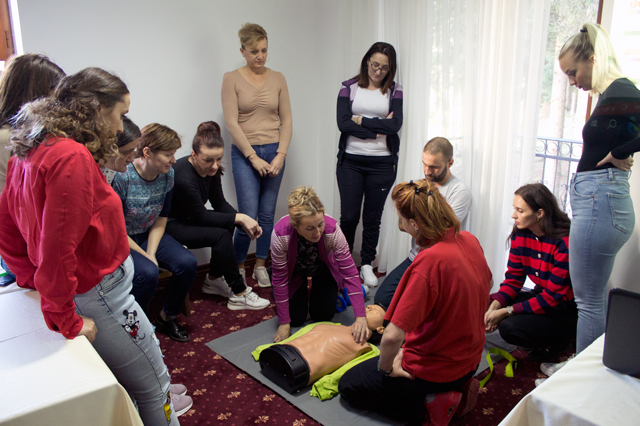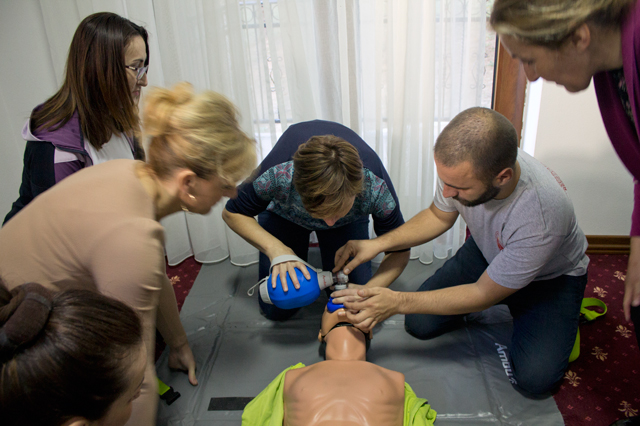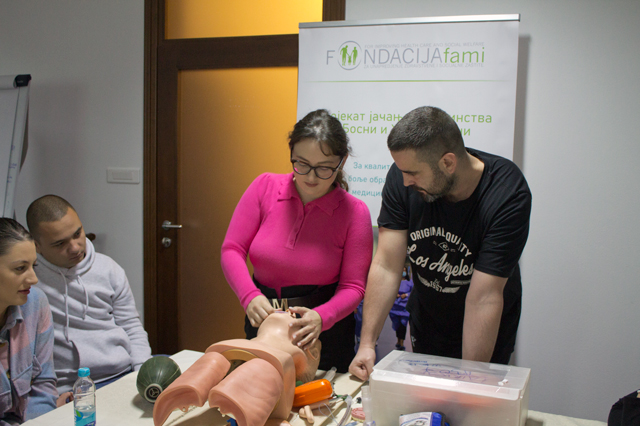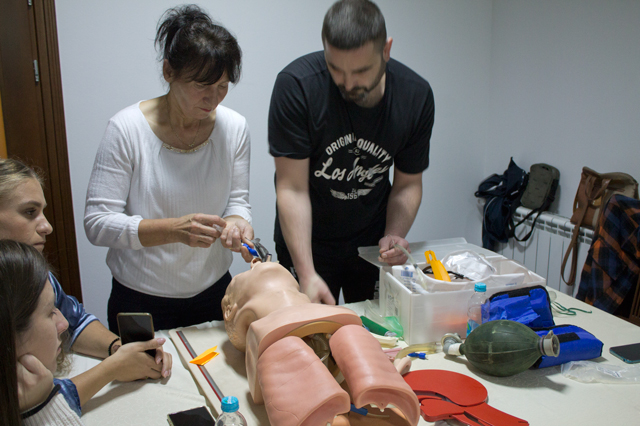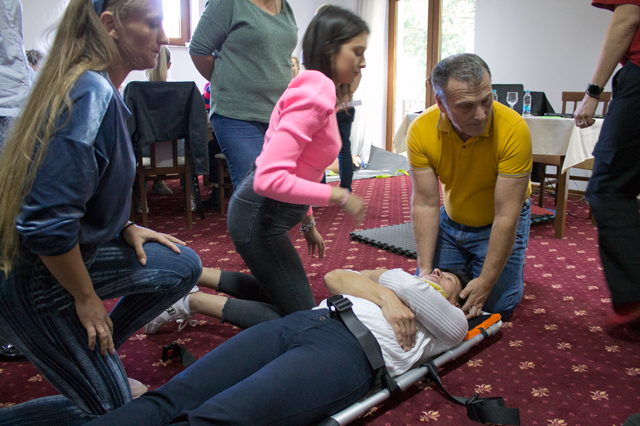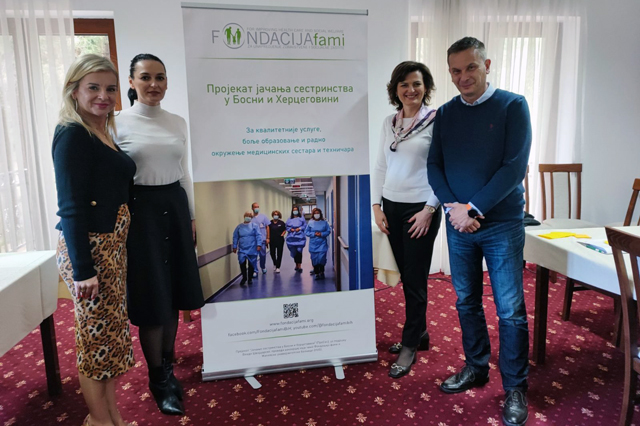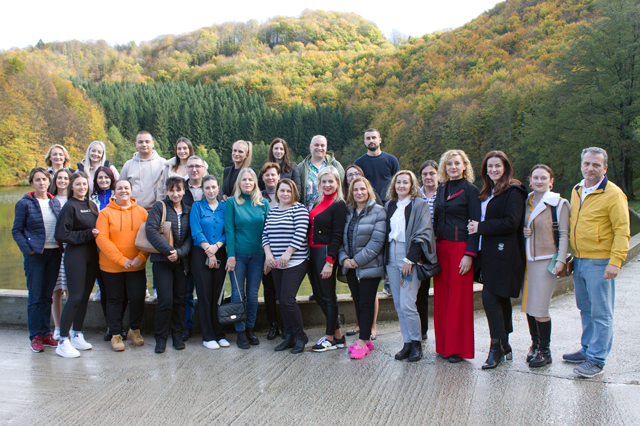The second part of the five-day additional training in community nursing, supported by the Strengthening Nursing in Bosnia and Herzegovina project, was successfully completed in Mrkonjic Grad.
11 experienced lecturers gave lectures on important topics, 31 nurses from seven primary health care centers took part in the training with numerous practical skills exercises.
At the very beginning, Dr. Marina Milovanovic from the Ministry of Health and Social Welfare of Republika Srpska talked about community assessment and profiling, the use of the health needs assessment approach, public health and promotion of healthy lifestyles and disease prevention, the impact of climate change on health, and the recognition and treatment of cases of gender-based violence.
Dr. Ranka Kalinic gave lectures on people with disabilities in family medicine and collaboration with the family.
Biljana Curguz, Nurse from the University Clinical Center Banjaluka, demonstrated through practical exercises and lectures how to treat emergency cases and addressed the importance of nursing care in a crisis situation.
Daliborka Golic, Assistant Director for Nursing at the "Dr. Miroslav Zotovic“ Institute, lectured on the role of a nurse in the prevention of polypharmacy and medication review, and the rehabilitation process.
During the third day of the training, the topics on quality indicators in the community nursing and in nursing care for patients with infectious diseases in family medicine were discussed. Lectures were given by nurse Zeljka Kupresak.
Spomenka Hotilovac, a nurse from the University Clinical Center Banjaluka, in her lecture covered topics on geriatric assessment and nursing care, and work with geriatric patients and their families.
Dr. Zvezdana Rajkovaca lectured about chronic diseases and the management of changes in patient behavior.
Sladjana Vranjes, Assistant General Director for Nursing Care at the University Clinical Center Banjaluka, underlined the importance of the patient assessment and nursing care process, transfer of patients between the hospital and the community, between the hospital and the social welfare institution, and about the continuity in nursing care.
Mirjana Jankovic, Senior Expert Associate for Nursing at the Ministry of Health and Social Welfare of RepublikaSrpska talked about the development and application of standard operating procedures in nursing, used by community nurses.
Patients and citizens of the Mrkonjic Grad, Celinac, Knezevo, Istocni Drvar, Kotor Varos, Ribnik and Sipovo municipalities benefit the most of the improved knowledge and skills of family medicine nurses, necessary for providing high quality community nursing services.
